Baby spots are an everyday reality for all parents. And we know it first hand! The EcoHaus brand is largely made up of moms who wash, or until recently washed, bodysuits, t-shirts and tights marked by their children's adventures every day. That's why you won't find any theoretical advice in this article - but tried-and-tested practices that work. Environmentally friendly, safe for children and functional in practice.
Come and see how to do it.

Carrots, pumpkin and other snacks
Feed stains are among the most stubborn - they often contain strong colour pigments.
What helps:
- Cleansing soda
- Citric acid or lemon juice
- White vinegar
- EcoHaus Washing Papers
Procedure:
- Rinse the stain with cold water as soon as possible.
- Apply a paste of cleaning soda and citric acid solution or a drop of lemon juice.
- Leave for 15-20 minutes.
- Wash in the usual way - ideally with a paper suitable for children's laundry.
Tip: Carrots leave orange stains thanks to beta-carotene. The sooner you take action, the more likely they are to come off without a trace.
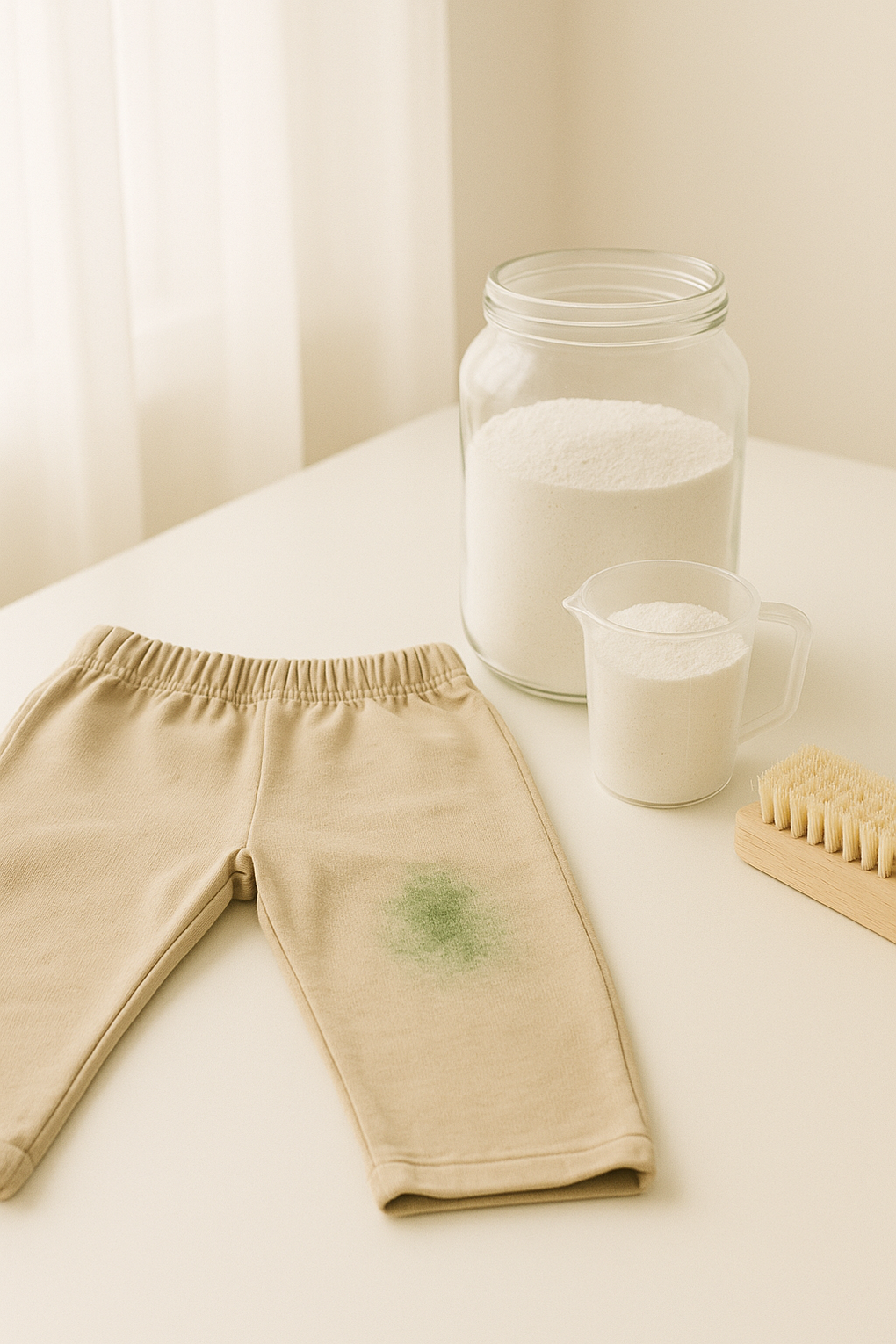
Dirt and grass
Organic stains from playing outside - a classic.
What will help:
- A soft toothbrush
- Cleaning soda
- Citric acid or lemon juice
- Sodium percarbonate - For white and light-coloured laundry
- EcoHaus Washing Papers
Procedure:
- Allow the clay to dry completely.
- Mechanically remove it with a brush.
- Apply a paste of citric acid and washing soda directly on the stain.
- Leave it for 30 minutes.
- For light-coloured textiles, add sodium percarbonate to the wash.
- Wash with EcoHaus Washing Papers.
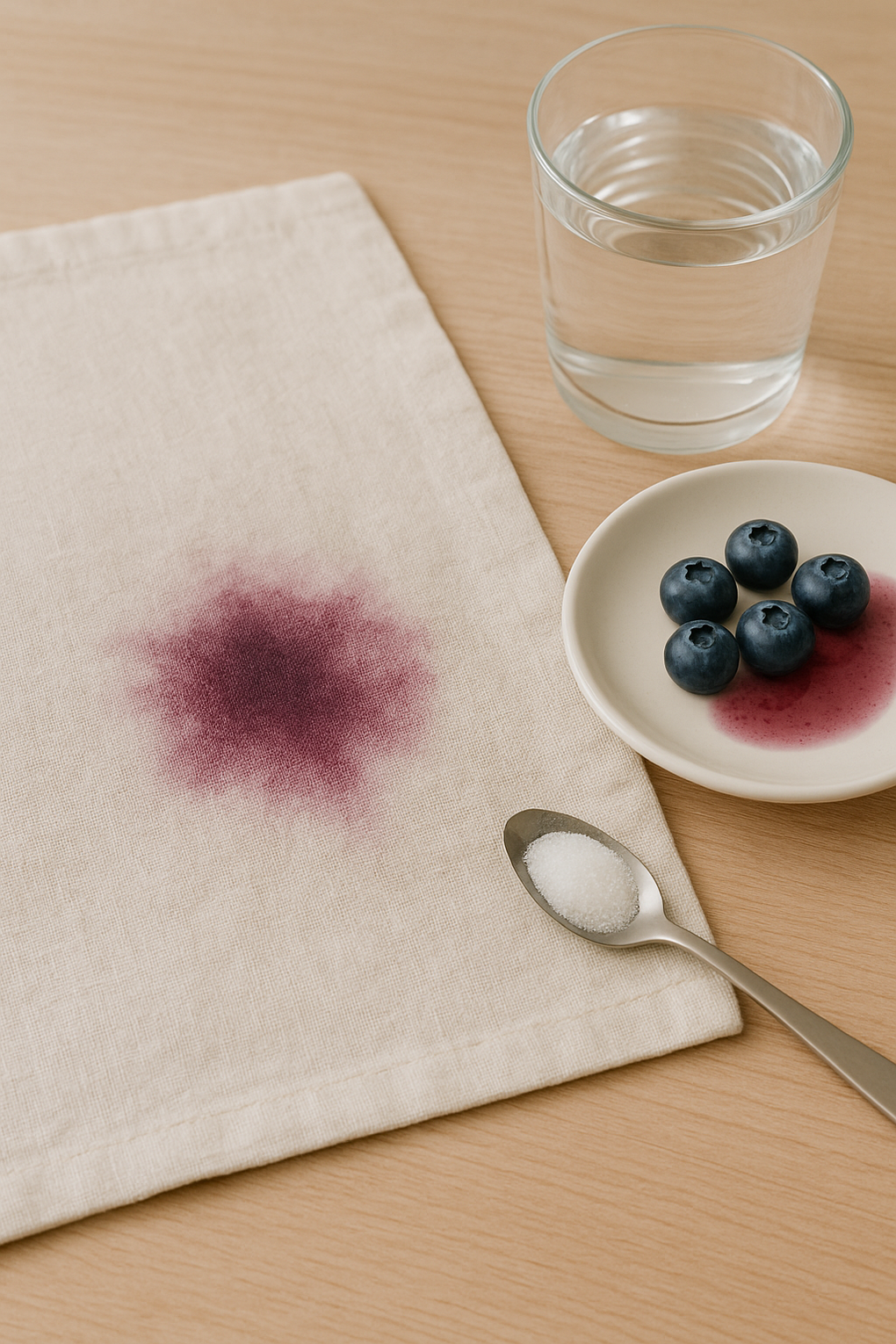
Blueberries and other fruits
The fresher the stain, the better the chances of removing it.
What helps:
- Cold water
- Cleaning soda
- Citric acid or lemon juice
- EcoHaus Washing Papers
- Sodium percarbonate - For white and light-coloured laundry
Procedure:
- Rinse the stain with cold water - ideally immediately.
- Pour washing soda on the damp stain and add a little lemon juice or citric acid dissolved in water.
- Leave for 10-20 minutes, then gently blot.
- For light-coloured textiles, add sodium percarbonate to the wash.
- Wash with EcoHaus Washing Papers.
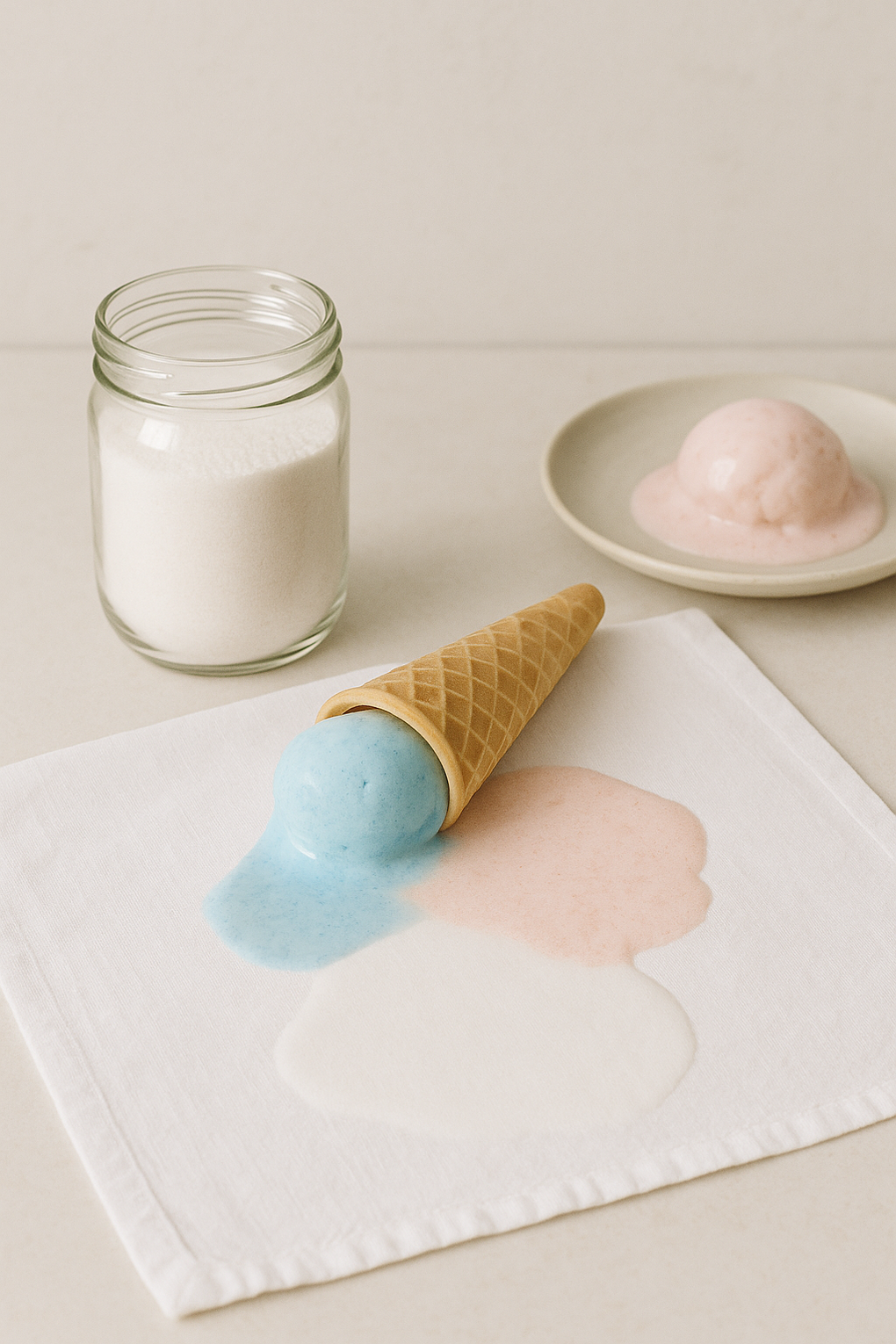
Ice cream
It contains sugars, fats and dyes that are easily absorbed into the fibres.
What helps:
- Cold or lukewarm water
- Cleaning soda
- Citric acid or lemon juice
- White vinegar
- EcoHaus Washing Papers
- Sodium percarbonate - for white and light-coloured laundry
Procedure:
- Remove the ice cream gently with a spoon - do not rub!
- Rinse the stain with cold water on the reverse side.
- Apply a paste of washing soda and lemon juice or citric acid.
- For heavily coloured stains (e.g. blue, red) you can add a little vinegar.
- Leave for 15-20 minutes, then gently wash.
- Wash with EcoHaus washing papers.
- For white or light-coloured laundry, add sodium percarbonate - the active oxygen brightens the fabric and removes pigment and grease residue.
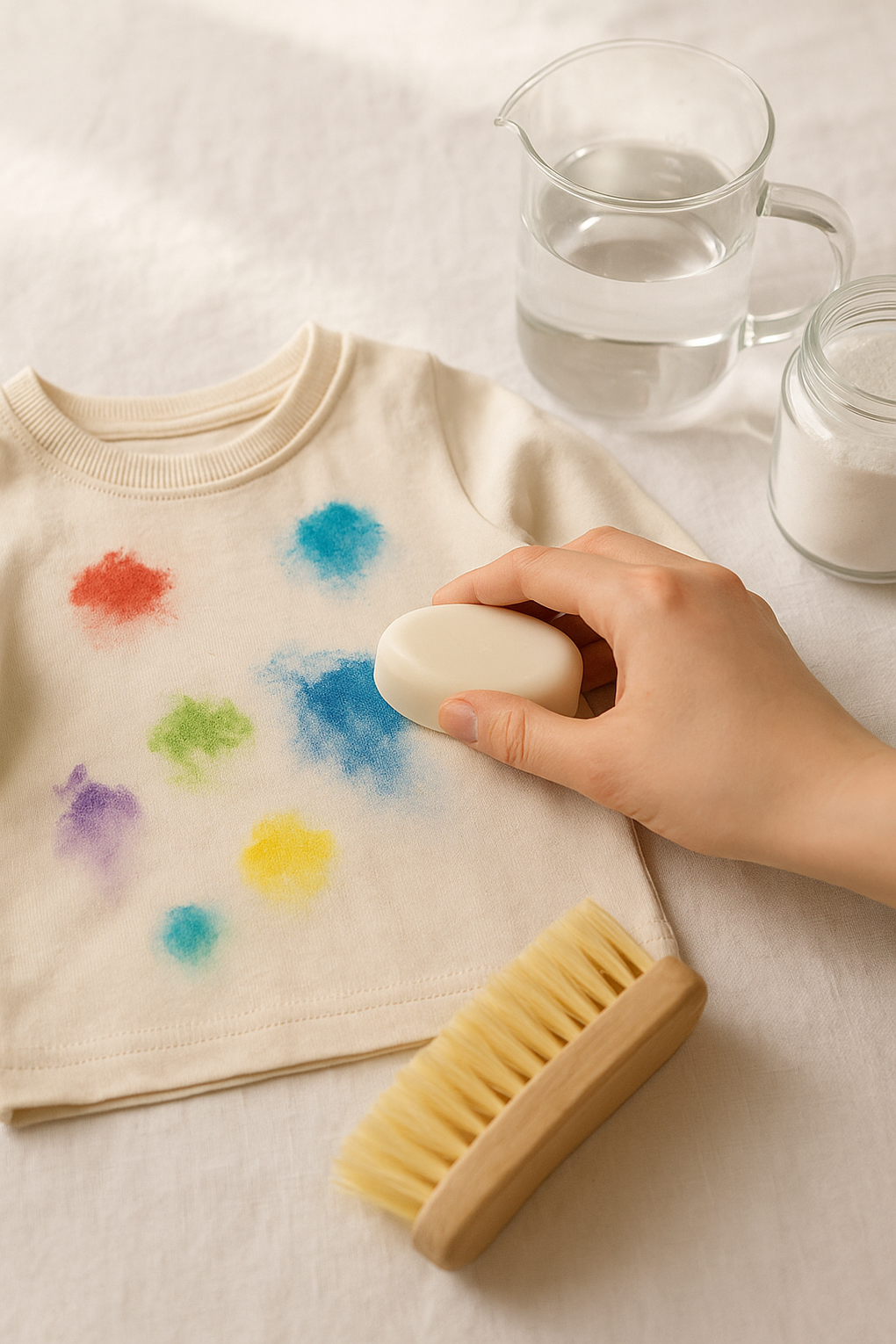
Tempera and other colours
They contain colour pigments, binders, chalk and binding agents, so that they form a hard, inflexible layer when dry. The pigments will adhere permanently to the fabric if not dealt with immediately.
What helps:
- Lukewarm water and a spoon
- Cleaning soda
- Citric acid or lemon juice
- White vinegar - softens paint residue
- Sodium percarbonate - For white and light-coloured linen
- EcoHaus Washing Papers
Procedure:
- Allow the tempera to dry partially, then carefully scrape off with a plastic spoon.
- Sprinkle the spot with washing soda, drizzle with lemon juice.
- Leave for 20-30 minutes.
- For heavy staining, add a poultice of white vinegar and lukewarm water (1:1), leave for 10 min.
- For white fabric, add sodium percarbonate to the wash.
- Wash with EcoHaus washing papers.

Plasticine
The stain tends to be oily, sticky and coloured. It is often aggravated by inappropriate scrubbing or washing without pre-treatment.
What helps:
- A freezer or ice cube
- Spoon or dull knife
- Cleaning soda
- Citric acid or lemon juice
- White vinegar - softens paint residue
- Sodium percarbonate - For white and light-coloured linen
- EcoHaus Washing Papers
Procedure:
- Allow the plasticine to set (either in the freezer or by adding ice).
- Peel off carefully with a dull knife or spoon.
- Apply a paste of baking soda and lemon or citric acid solution to the remaining grease and colour.
- Leave on for 20-30 minutes.
- Wash with EcoHaus Washing Papers.
- For white laundry, add sodium percarbonate.
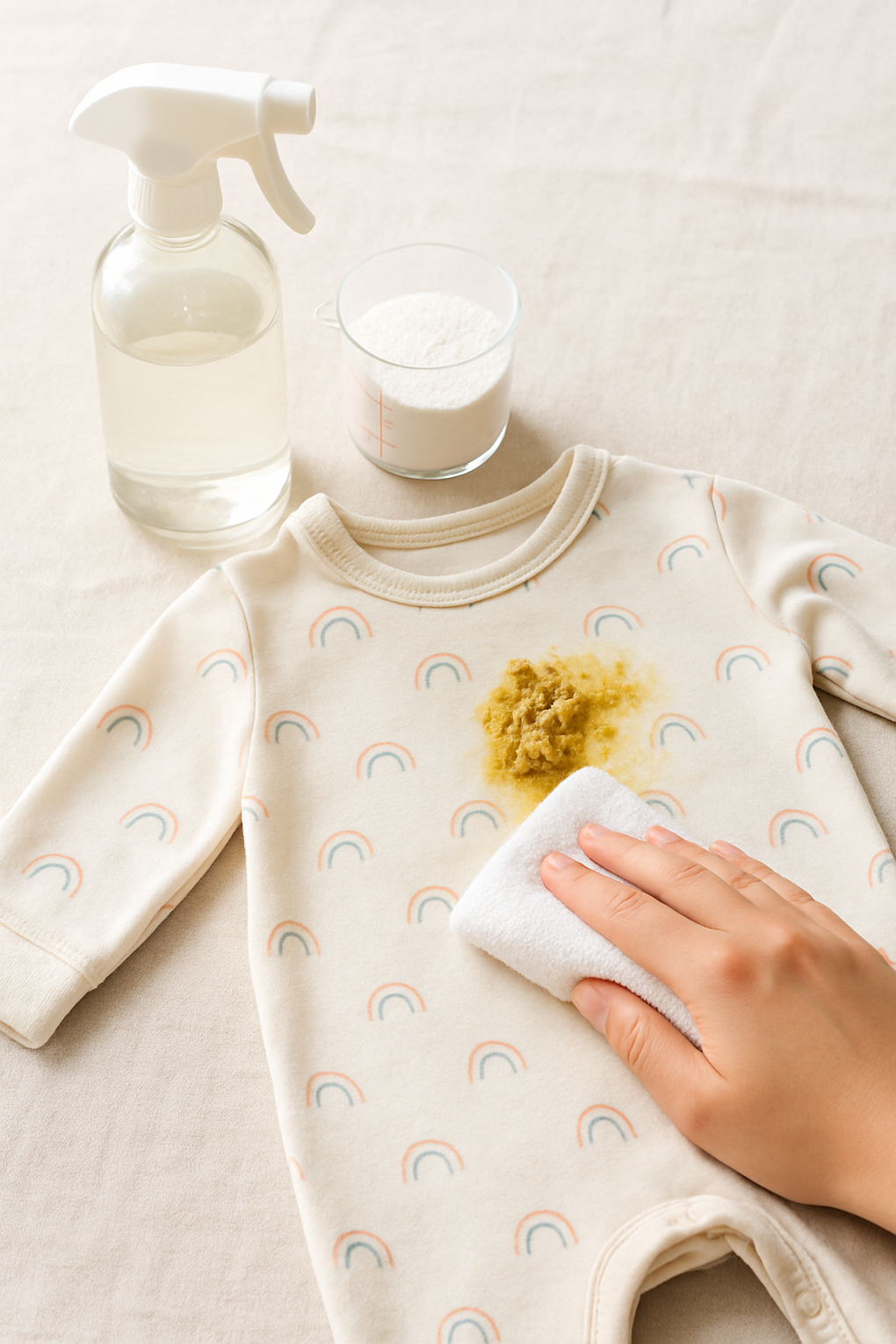
Vomit
Yes, this is part of parenting too. The problem is the combination of biofouling and odor, which requires neutralization + deep cleaning + deodorization.
What helps:
- Paper wipes to remove residue
- Cleaning soda
- Citric acid or lemon juice
- White vinegar - softens paint residue
- Sodium percarbonate - especially for white bedding
- EcoHaus Washing Papers
- EcoHaus essential oil
Procedure:
- Immediately remove any residual vomit, gently - do not press, just wipe.
- Sprinkle the stain with cleaning soda, leave for 10-15 min, the soda will absorb the odour and moisture.
- Then apply a paste of lemon and a new dose of cleaning soda (or citric acid). For strong odours, add a little white vinegar to the mixture.
- Leave for 30-60 minutes.
- For light-coloured fabrics, add sodium percarbonate to the wash.
- Wash with EcoHaus Washing Papers.
- Add a few drops of essential oil to the last soak, on a towel or in a laundry bag.
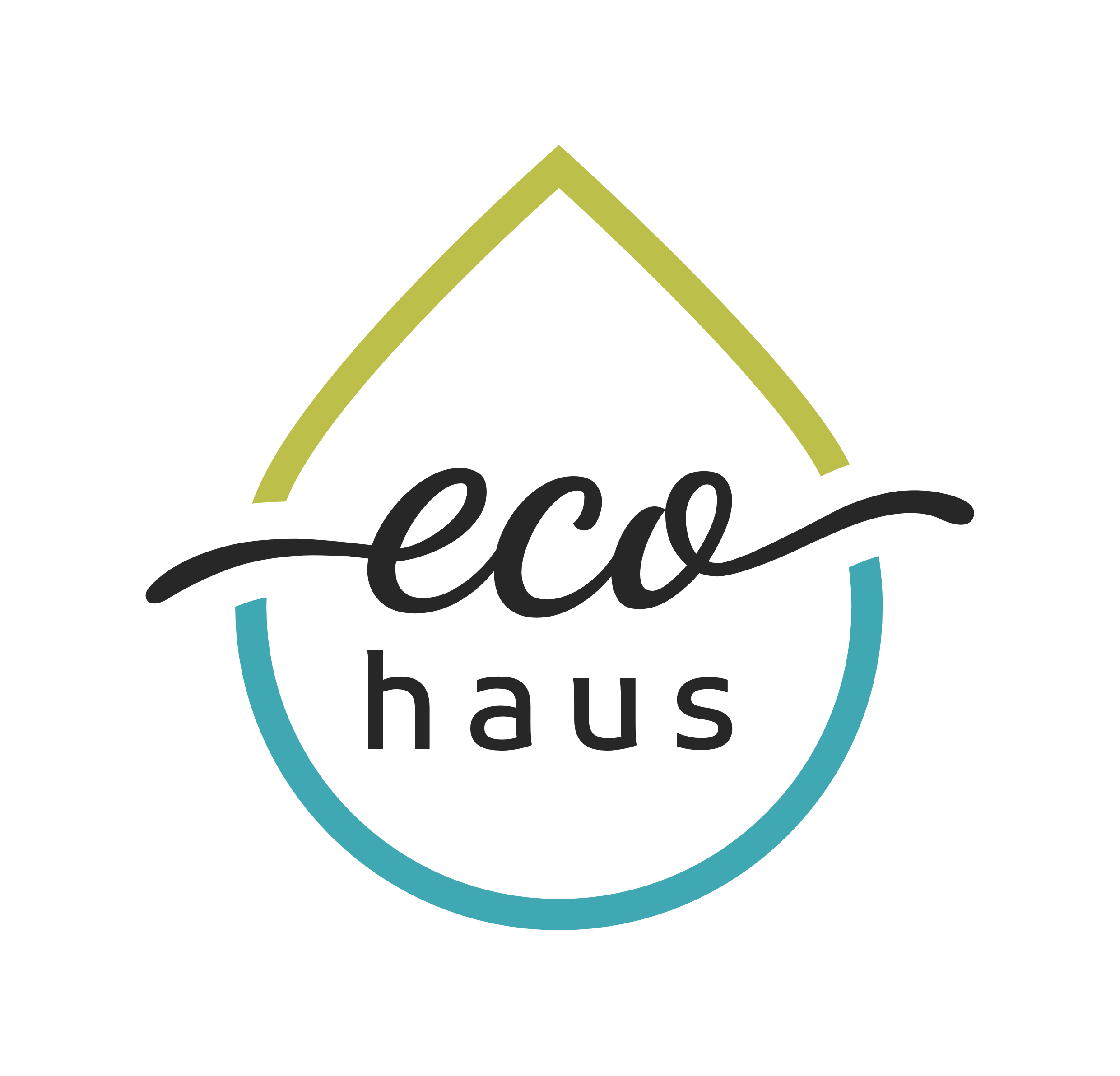
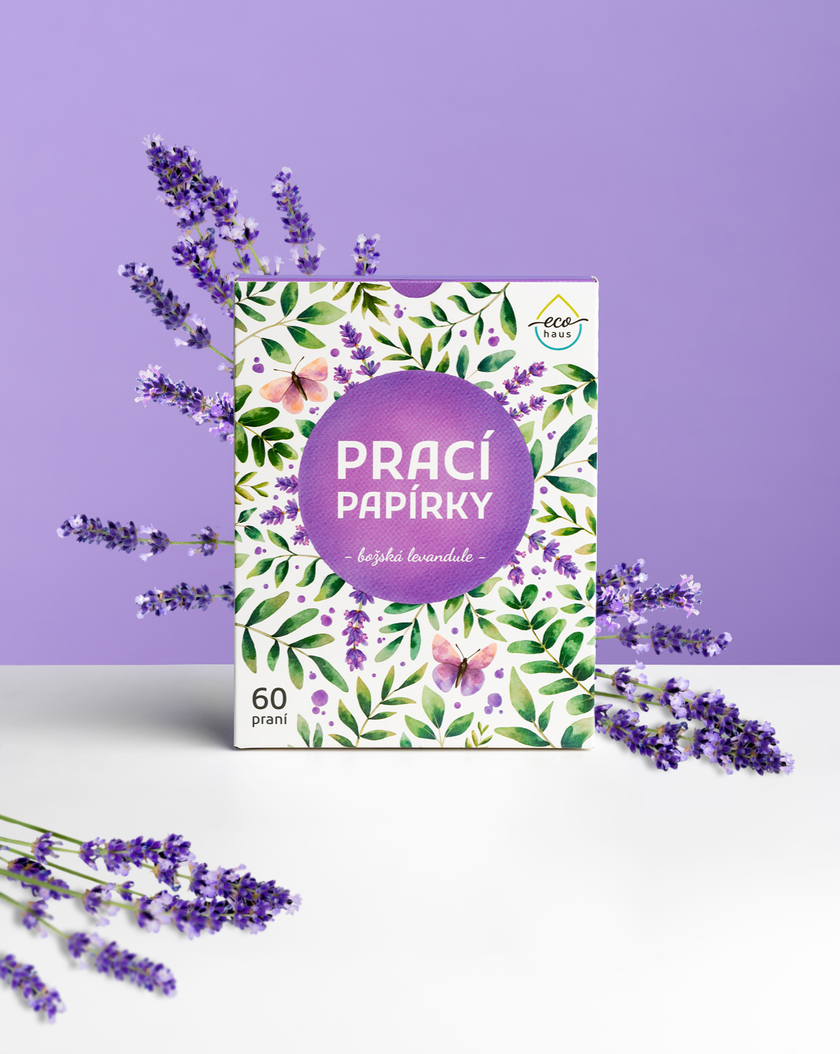
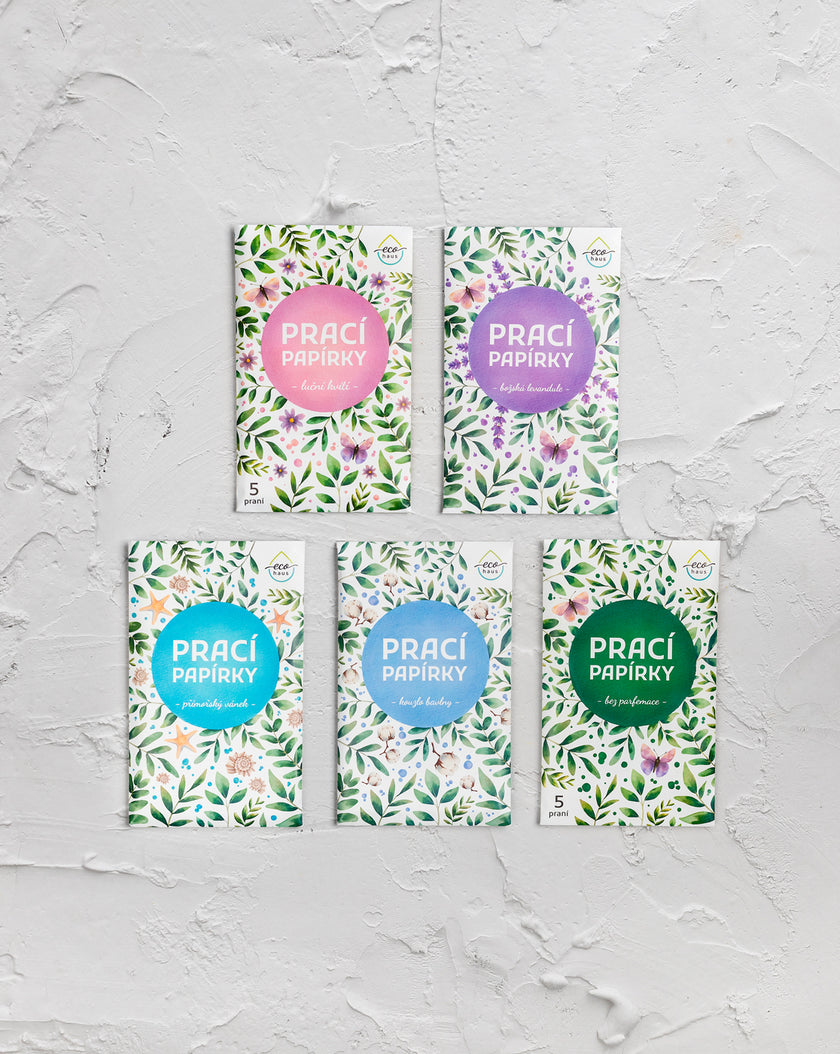
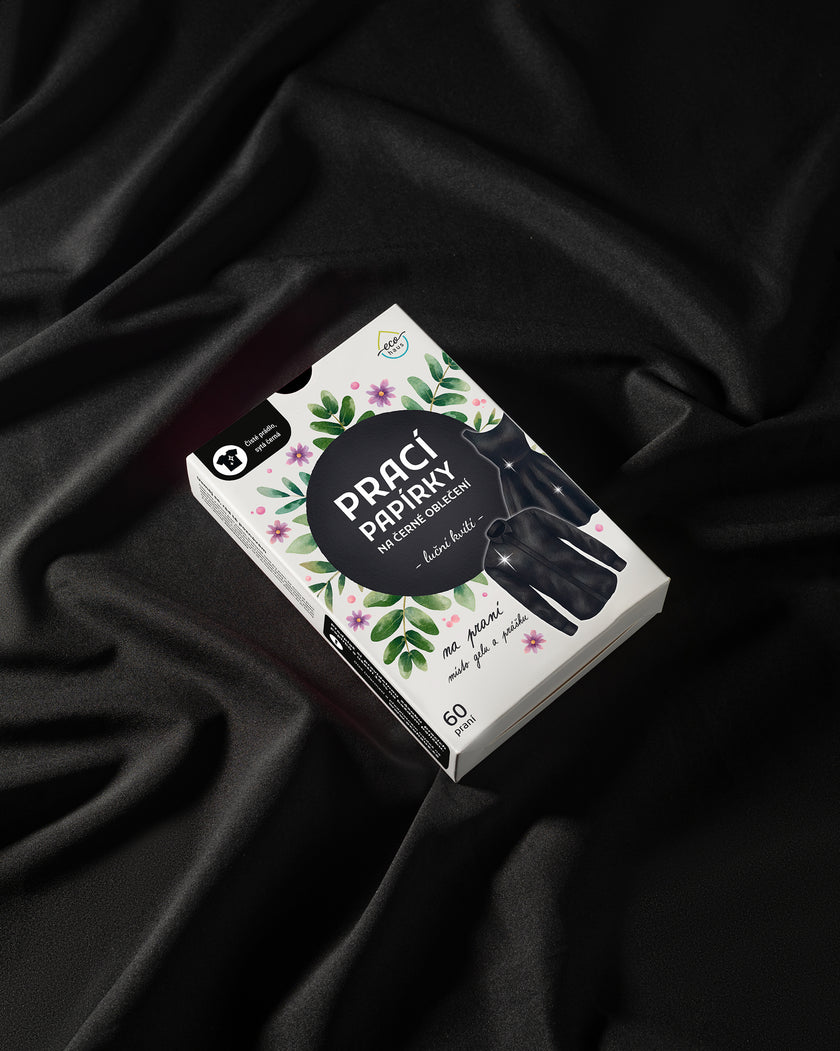


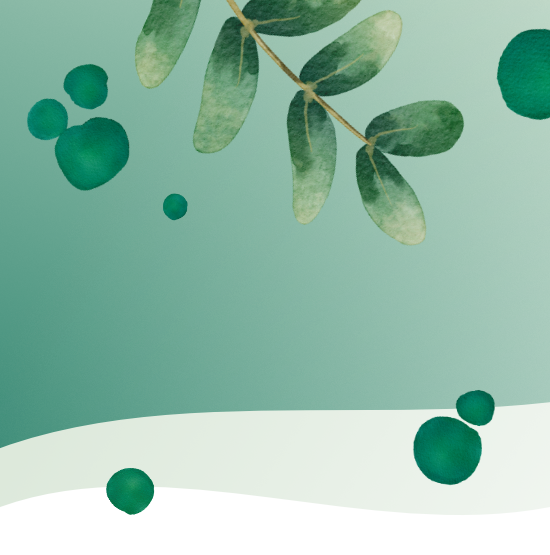
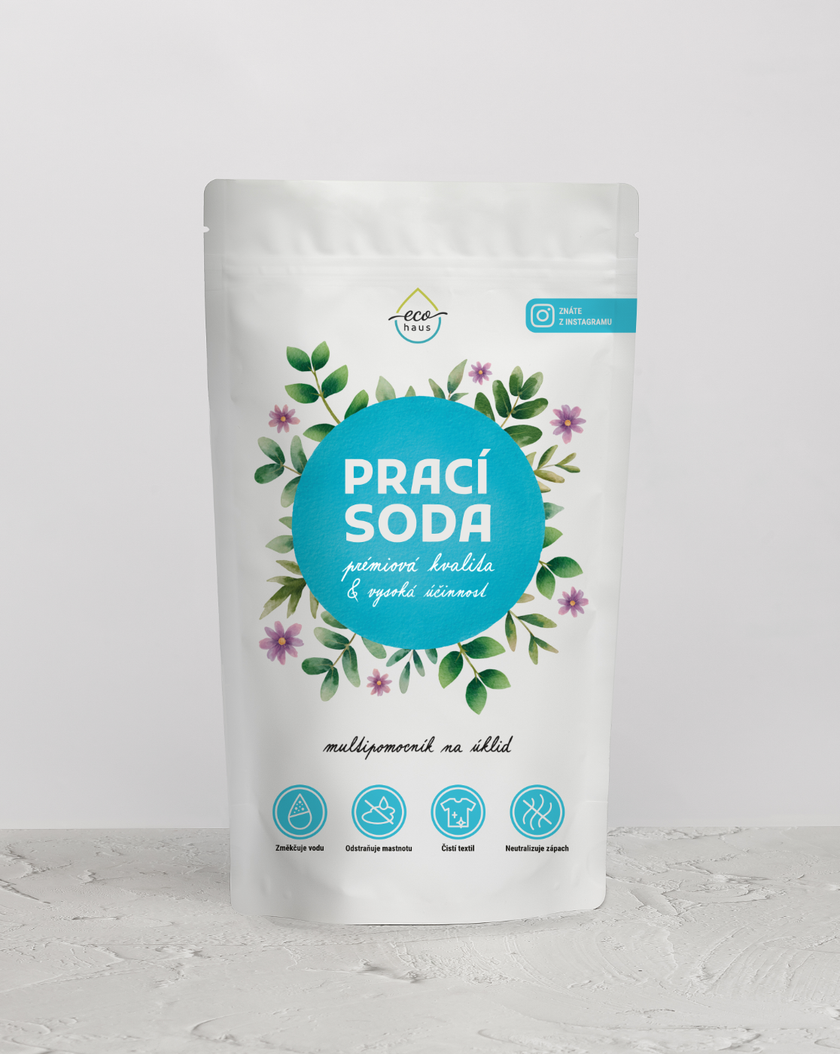
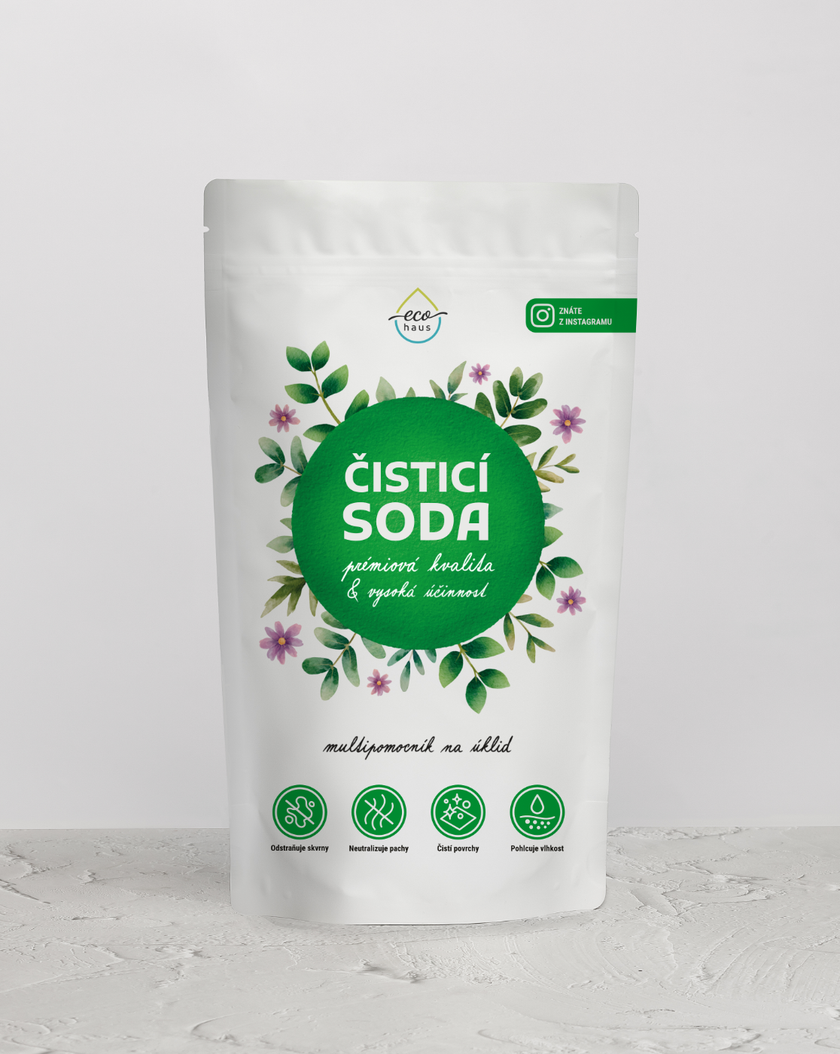
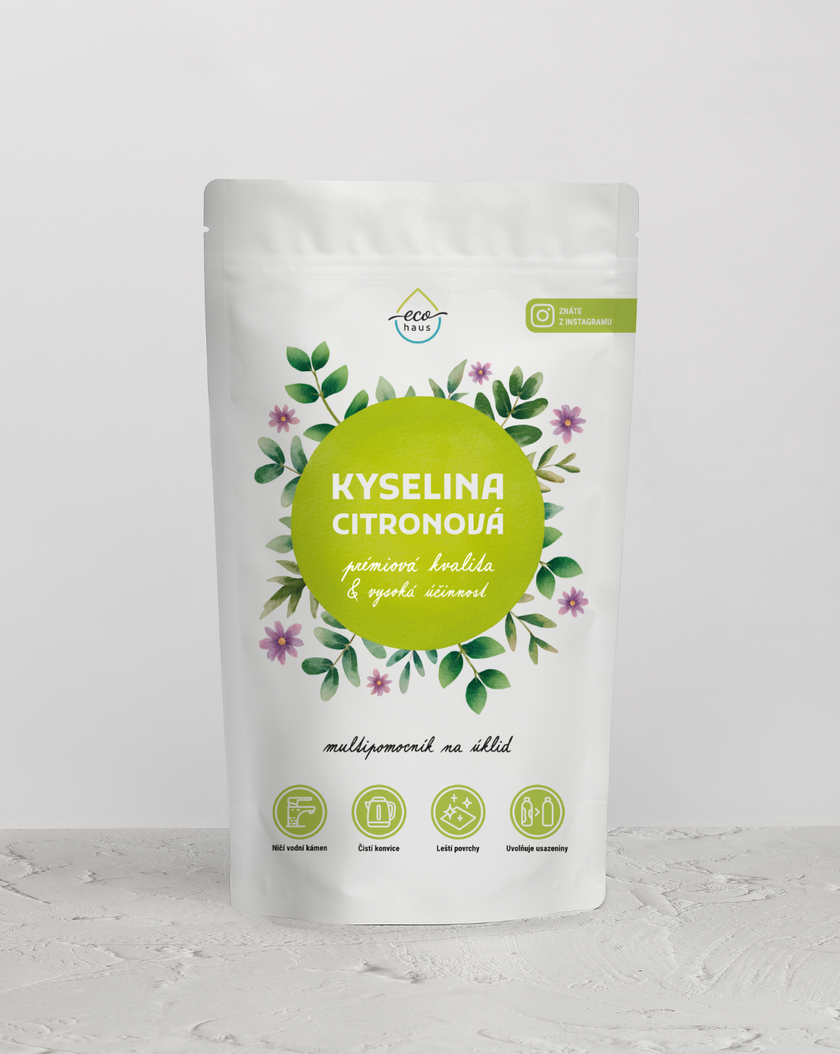
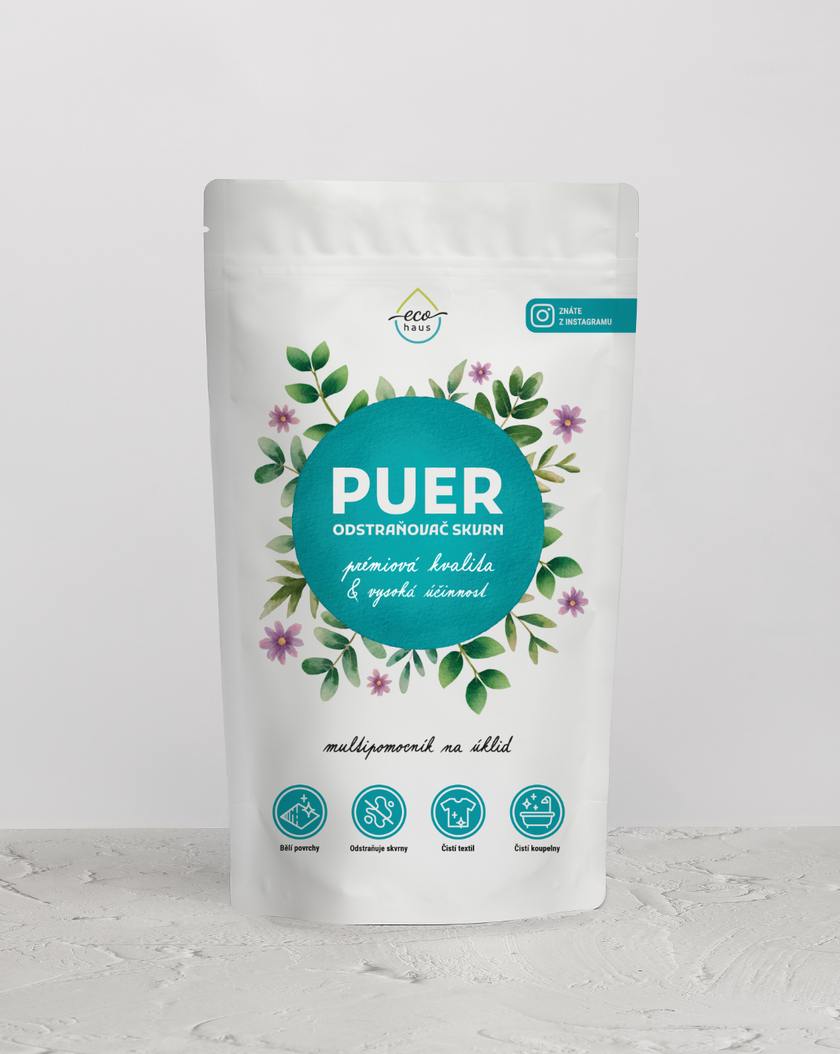
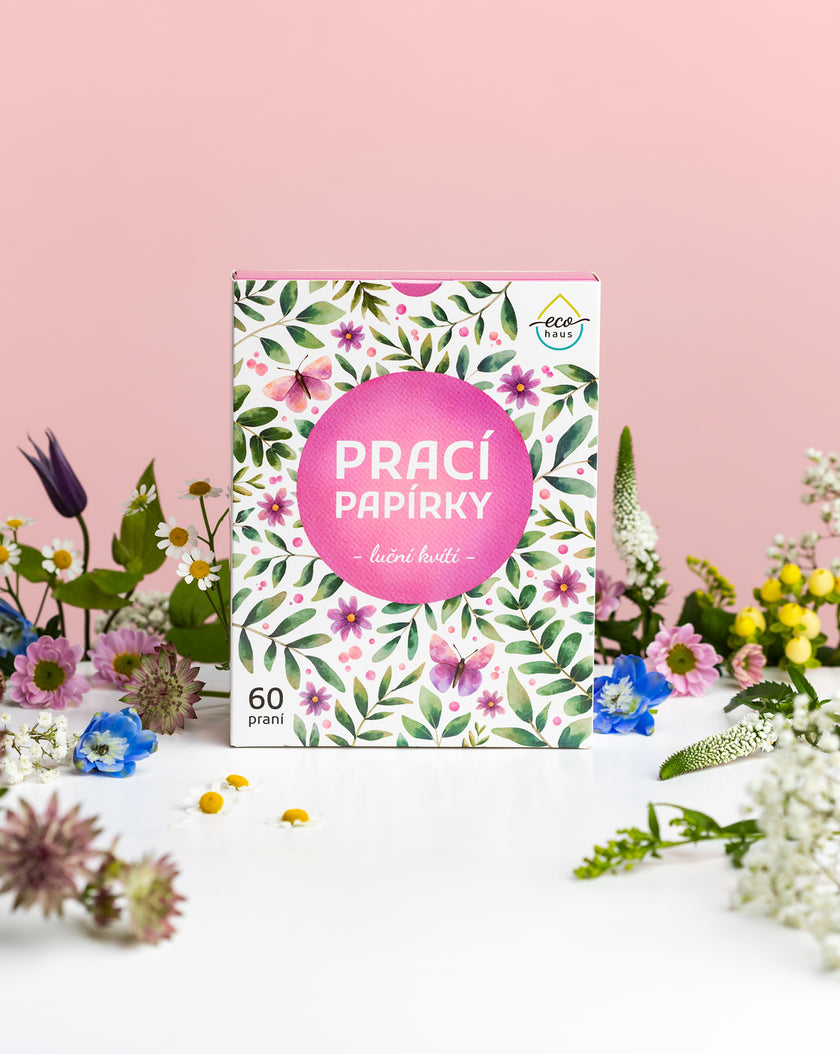







Comments (0)
There are no comments on this article. Be the first to leave a comment!